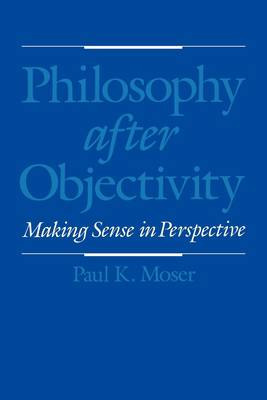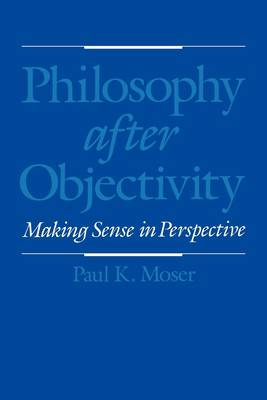
- Afhalen na 1 uur in een winkel met voorraad
- Gratis thuislevering in België vanaf € 30
- Ruim aanbod met 7 miljoen producten
- Afhalen na 1 uur in een winkel met voorraad
- Gratis thuislevering in België vanaf € 30
- Ruim aanbod met 7 miljoen producten
Zoeken
€ 166,45
+ 332 punten
Uitvoering
Omschrijving
Since the beginning of philosophy, philosophers have sought objective knowledge: knowledge of things whose existence does not depend on one's conceiving of them. This book uses lessons from debates over objective knowledge to characterize the kinds of reasons pertinent to philosophical and other theoretical views. It argues that we cannot meet skeptics' typical demands for nonquestion-begging support for claims to objective truth, and that therefore we should not regard our supporting reasons as resistant to skeptical challenges. One key lesson is that a constructive, explanatory approach to philosophy must change the subject from skeptic-resistant reasons to perspectival reasons arising from variable semantic commitments and instrumental, purpose-relative considerations. The book lays foundations for such a reorientation of philosophy, treating fundamental methodological issues in ontology, epistemology, the theory of meaning, the philosophy of mind, and the theory of practical rationality. It explains how certain perennial debates in philosophy rest not on genuine disagreement, but on conceptual diversity: talk about different matters. The book shows how acknowledgment of conceptual diversity can resolve a range of traditional disputes in philosophy. It also explains why philosophers need not anchor their discipline in the physicalism of the natural sciences.
Specificaties
Betrokkenen
- Auteur(s):
- Uitgeverij:
Inhoud
- Aantal bladzijden:
- 280
- Taal:
- Engels
Eigenschappen
- Productcode (EAN):
- 9780195130942
- Verschijningsdatum:
- 7/10/1999
- Uitvoering:
- Paperback
- Formaat:
- Trade paperback (VS)
- Afmetingen:
- 155 mm x 233 mm
- Gewicht:
- 408 g

Alleen bij Standaard Boekhandel
+ 332 punten op je klantenkaart van Standaard Boekhandel
Beoordelingen
We publiceren alleen reviews die voldoen aan de voorwaarden voor reviews. Bekijk onze voorwaarden voor reviews.











